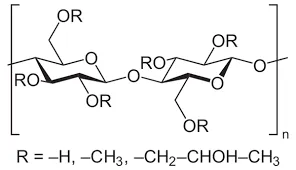
Sep . 15, 2024 23:10 Back to list
hpmc-hydroxypropyl methyl cellulose manufacturer
Hydroxypropyl Methyl Cellulose (HPMC) An Essential Ingredient in Various Industries
Hydroxypropyl Methyl Cellulose, commonly referred to as HPMC, is a semi-synthetic polymer derived from cellulose. It has gained immense popularity across a multitude of industries due to its unique properties and versatility. The manufacturing process of HPMC involves the modification of natural cellulose, which is sourced from wood pulp or cotton. The result is a chemically stable, water-soluble compound that boasts several functional attributes.
Key Properties of HPMC
One of the defining characteristics of HPMC is its ability to form gels and retain moisture. This property makes it an excellent thickening agent that can enhance the texture and viscosity of various products. HPMC is also biodegradable and non-toxic, making it suitable for use in food, pharmaceuticals, and personal care products. Its emulsifying capabilities allow it to stabilize oil-in-water emulsions, making it a valuable component in cosmetic formulations.
Furthermore, HPMC has excellent film-forming properties, which makes it valuable in the construction industry, particularly in tile adhesives, cement products, and other building materials. The ability to improve the workability of cement mixtures while also enhancing their adhesion to surfaces is crucial for the longevity and durability of construction projects.
Applications in Various Industries
1. Pharmaceuticals In the pharmaceutical industry, HPMC is widely used as a binder, film-forming agent, and controlled-release agent for tablets and capsules. Its ability to form hydrogels allows for the precise release of active ingredients, improving the efficacy of the drug.
hpmc-hydroxypropyl methyl cellulose manufacturer

2. Food Industry HPMC is often employed in the food sector as a thickening and stabilizing agent. It helps in maintaining the texture of sauces, dressings, and dairy products. Additionally, HPMC is used as a fat replacer and can improve the overall mouthfeel of low-fat products.
3. Cosmetics and Personal Care In the cosmetics industry, HPMC acts as a thickener and emulsifier, providing a smooth texture in creams, lotions, and gels. Its ability to impart a silky feel makes it a popular choice for various personal care products.
4. Construction HPMC's versatility extends to the construction industry, where it enhances the workability of plaster, mortar, and tile adhesives. It helps improve water retention and prevents cracking, thereby prolonging the lifespan of building materials.
Safety and Regulatory Considerations
HPMC is generally regarded as safe for consumption and use in various applications, which is supported by regulatory approvals from organizations such as the FDA and EFSA. Its non-toxic nature makes it suitable for products intended for sensitive populations, including children and those with allergies.
Conclusion
As a leading manufacturer of Hydroxypropyl Methyl Cellulose, companies are tapping into its widespread applicability across numerous sectors. The demand for HPMC is expected to continue growing as industries seek sustainable and efficient ingredients that meet consumer needs. The ongoing research and development in HPMC formulations promise to unlock new applications and enhance its utility in existing processes, underscoring the importance of HPMC in a variety of applications. With its remarkable properties, HPMC is poised to play a critical role in shaping the future of various industries.
-
Unlocking the Benefits of HPMC Products: A Gateway to Versatile Applications
NewsAug.07,2025
-
Unleashing the Potential of HPMC Ashland: A Comprehensive Look
NewsAug.07,2025
-
Tile Bonding Cellulose: The Key to Superior Adhesion and Durability
NewsAug.07,2025
-
Hydroxypropyl Methylcellulose Powder: The Versatile Component in Modern Pharmaceuticals
NewsAug.07,2025
-
Hydroxyethyl Cellulose: The Versatile Solution for Various Industries
NewsAug.07,2025
-
Hydroxyethyl Cellulose (HEC): The Versatile Polymer for Various Applications
NewsAug.07,2025







